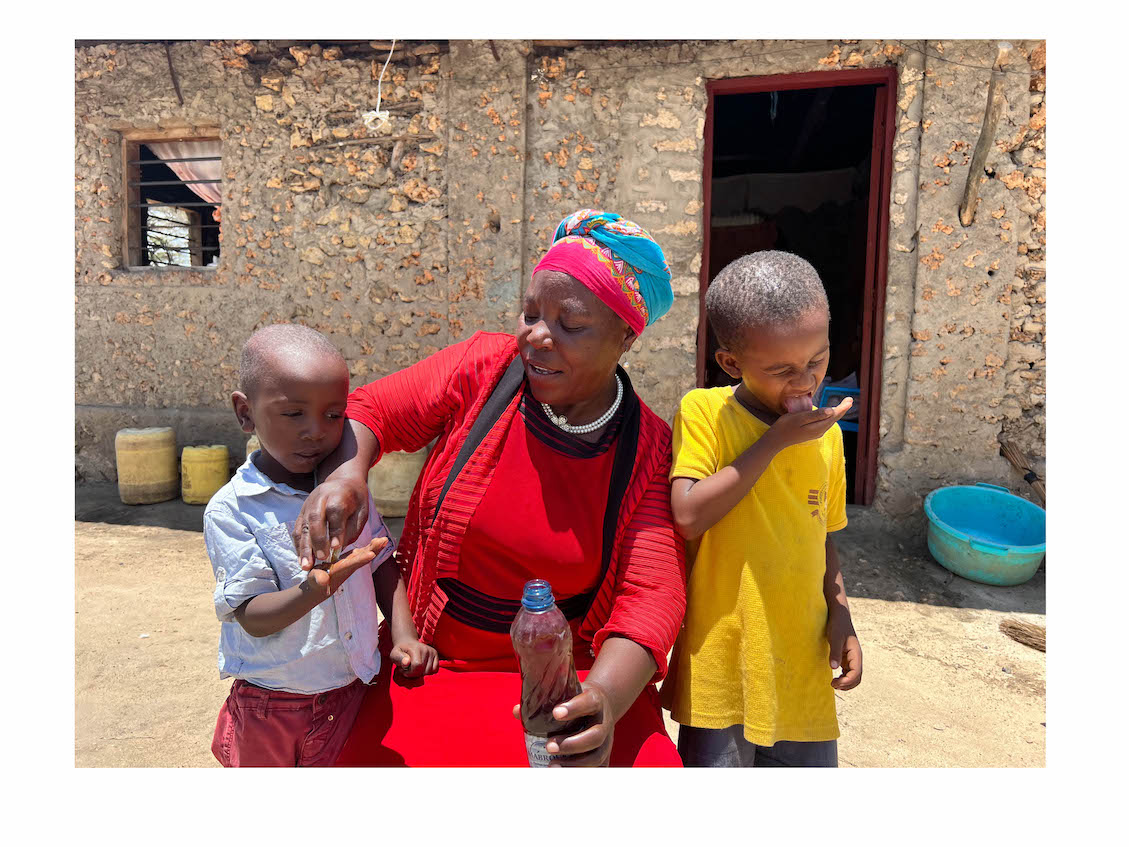Invasive tree species provide organic pesticide for communities in Tana River, Kenya
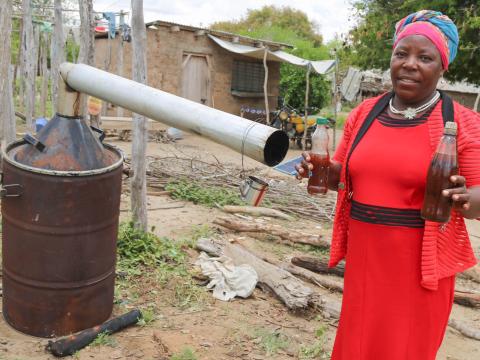
By Martin Muluka, Emergency Communications Specialist, World Vision Kenya
The Proposis Juliflora trees are a menace to many farmers in Tana River County, Kenya.
These invasive trees, commonly known as Mathenge, are adept at colonising other vegetation and causing biodiversity losses.
While other people struggle to eradicate them, Joyce – a farmer in the area – is pleased by their existence as she is reaping numerous benefits from the mathenge trees.
She is among the many people that have been empowered to effectively manage and co-exist with these trees, by tapping on their benefits.
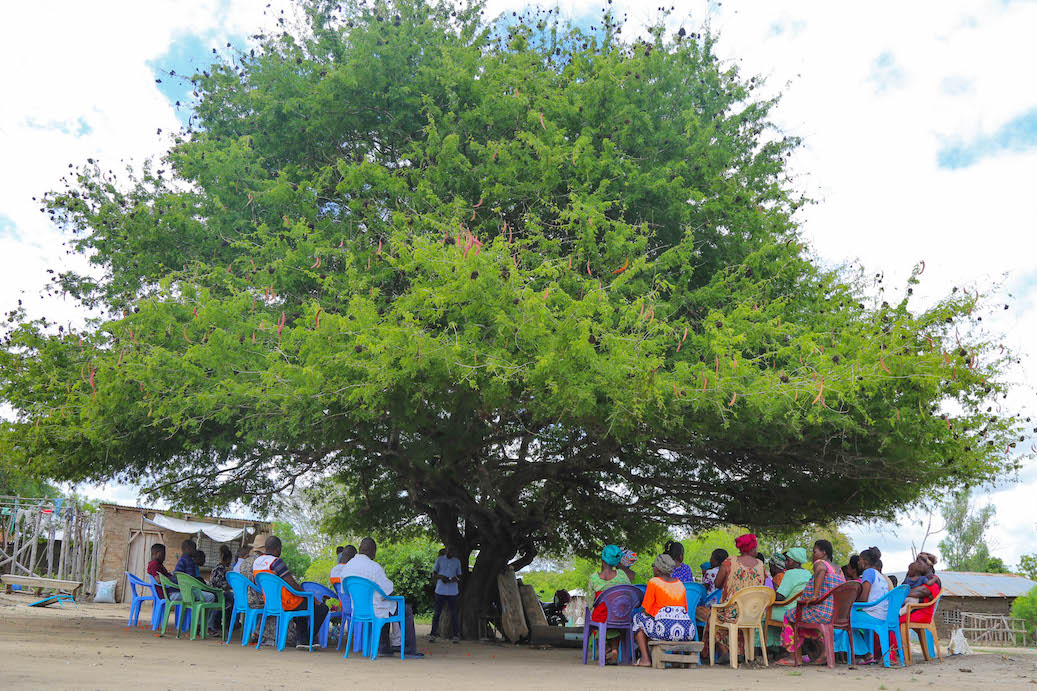
This has been achieved through the Tana River Climate Change and Livelihoods Restoration Project (TCLIRP), which is being implemented by World Vision in Tana River County. It is funded by the organisation’s donors in Korea.
A key component of the project focuses on the sustainable use of forest resources, as well as building the capacity of communities to understand the importance of trees and the significant role that they play in climate change mitigation and adaptation.
Thanks to the training offered by the project, Joyce has been able to make ‘lemonade’ from the ‘bitter lemons’ of the mathenge invasive trees, by unearthing their economic potential.
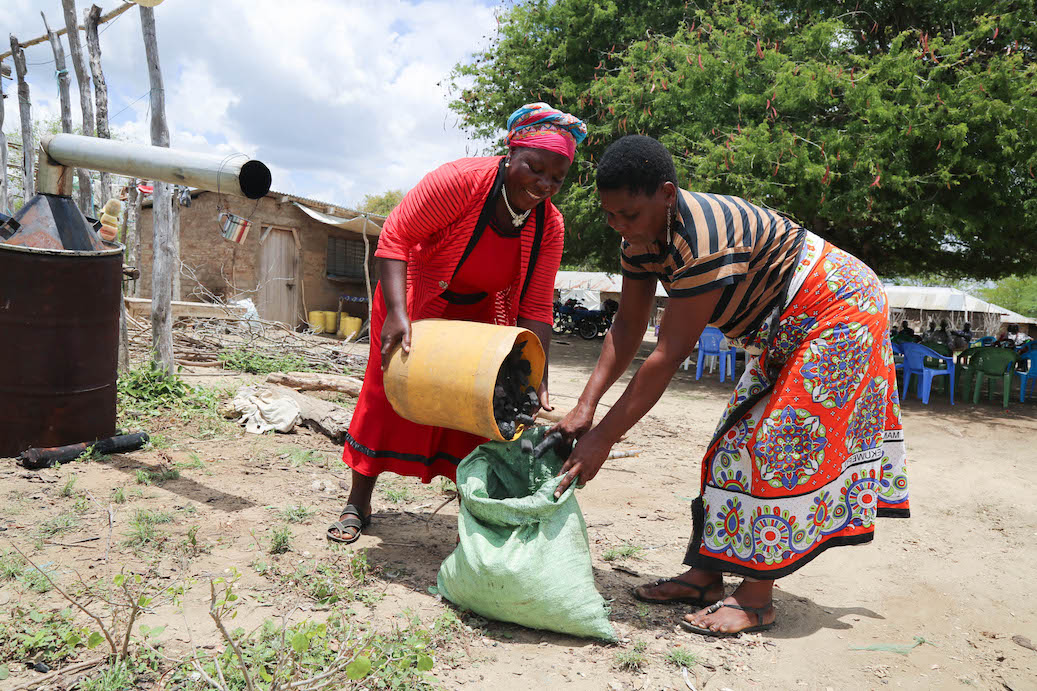
The trees provide her with wood fuel (in the form of charcoal) which she uses for cooking at home. Joyce also generates income through the sale of charcoal to neighbouring towns and communities.
The invasive trees have lessened the pressure on indigenous trees and rain forests in Tana River, which were increasingly being destroyed due to the increased demand for charcoal in the area.
In addition, the trees provide Joyce with wood vinegar which refers to liquid smoke harvested during the charcoal production process.
Wood vinegar serves as an excellent environmentally friendly pesticide and fertiliser. It Improves soil quality and helps in the elimination of pests and diseases that impede plant growth.
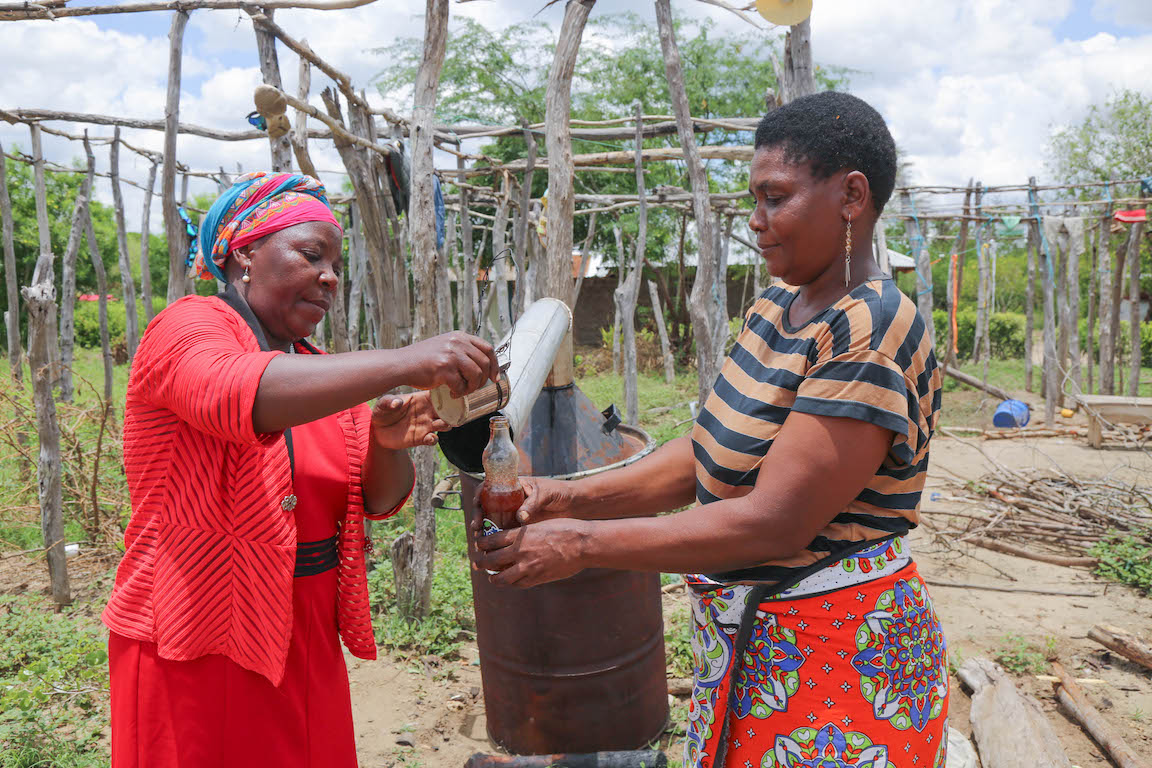
Through its use, Joyce has been able to cut costs related to the purchase of toxic synthetic fertilisers or pesticides whose prolonged use contributes to reduced soil fertility and environmental degradation.
Most importantly, the use of wood vinegar has enabled Joyce to get bumper harvests that sustain her family’s food needs and generate additional income from the sale of surplus food crops.
“For a long time, I could not farm on this land nor graze my animals because the mathenge tree would not allow any crops or vegetation to thrive here. I tried to eradicate the plant by cutting and burning it, but this was a tedious exercise that would take long to bear fruits,” she says.
Joyce later changed strategy after learning about the beneficial uses of the invasive tree.
“Through this experience, I have learnt that there is no bad tree in the world. We just need to identify its usefulness,” she says.
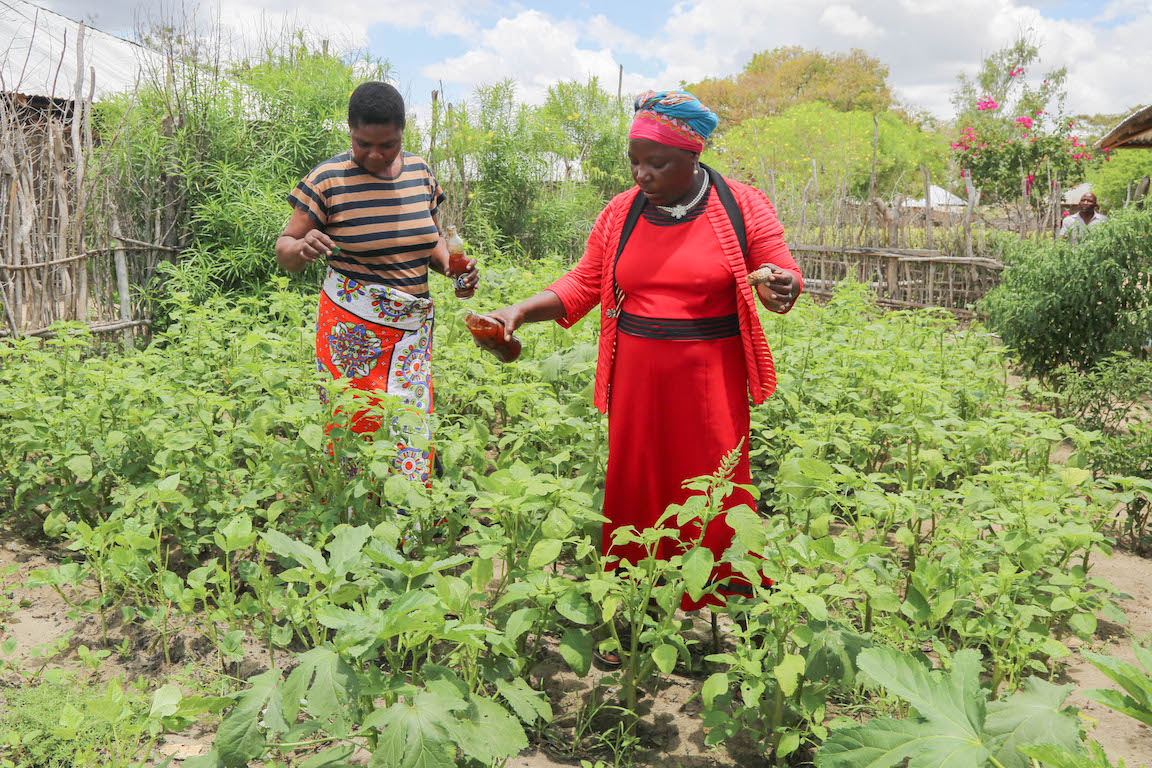
“Through the support of World Vision, I was trained on the benefit of trees and how to utilise them to improve our livelihoods. Afterwards, I was provided with a modern kiln for charcoal burning. Most importantly, I was taught how to harvest wood vinegar which I use as an insecticide in my kitchen garden.”
According to Joyce, the productivity of vegetables on her farm has improved since she began using wood vinegar to eradicate aphids and other pests that used to destroy the crop.
“I am happy that I now have enough vegetables for my use at home and for selling at the market, “she says.
As a Trainer-of-Trainers, Joyce has passed the knowledge she received to other women in her community.
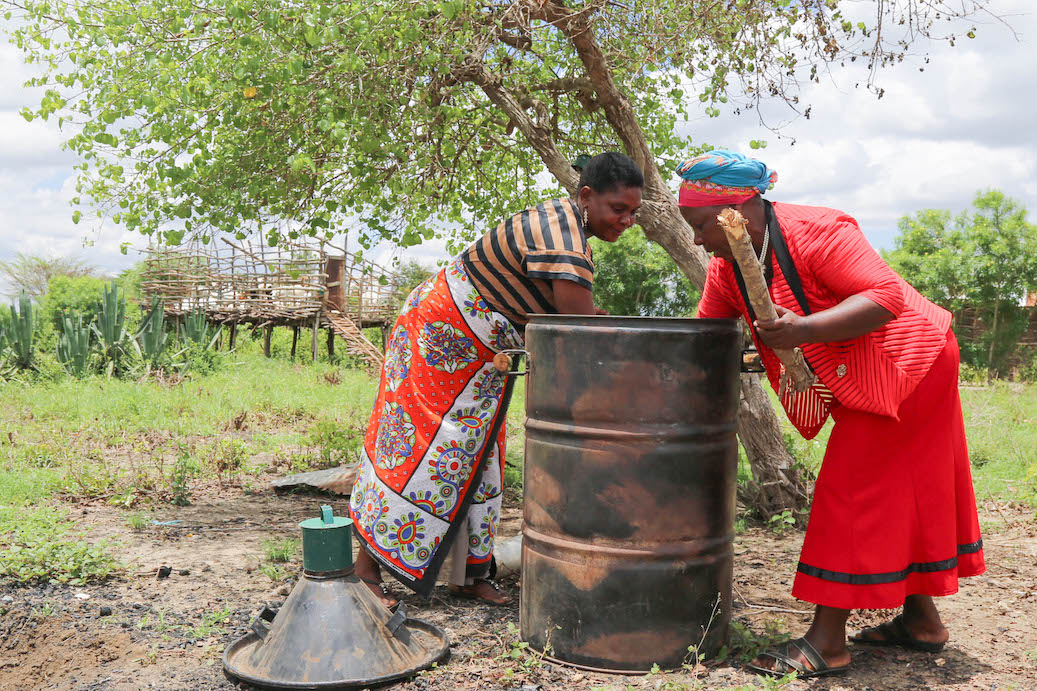
Collins Obale, the TCLIRP Manager for World Vision notes that they provided numerous portable kilns to selected residents of Tana River County, Kenya.
“The new kilns are helping them to burn charcoal effectively and harvest wood vinegar. Before this intervention, we used to rely on traditional earth mound kilns which produce low quality charcoal hence requiring us to cut more trees,” She says.
Aside from generating income through charcoal production and improved crop yields, communities in Tana River can now practice beekeeping because of their deliberate efforts to conserve forests and indigenous trees on their farms.
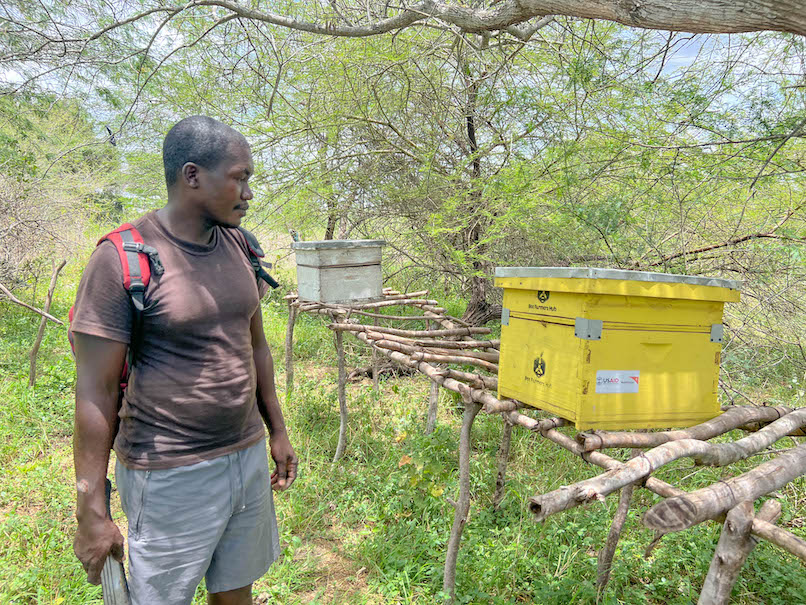
“We have also provided them with modern hives that have led to a drastic increase in honey production. Many families used to practice beekeeping as a hobby using traditional hives. With the modern hives and effective training, they have now commercialised beekeeping and are making over 10,000 dollars per harvesting season,” says Collins.
He adds that the project is strategically reaching out to women with the aim of promoting gender-inclusion in economic empowerment initiatives.
Joyce, who is one of the many women impacted by the project notes that she initially kept off beekeeping as it is perceived as a male dominated field by the community.
“But I decided to take up the challenge after receiving ten beehives from World Vision, as well as training on beekeeping. Now, I get income from multiple streams - honey, charcoal and crop farming. Before, we were really suffering due to poverty. But now, I have enough food to keep my children and family healthy. I also have sufficient income to cater for other basic needs such as paying school fees,” she says.
